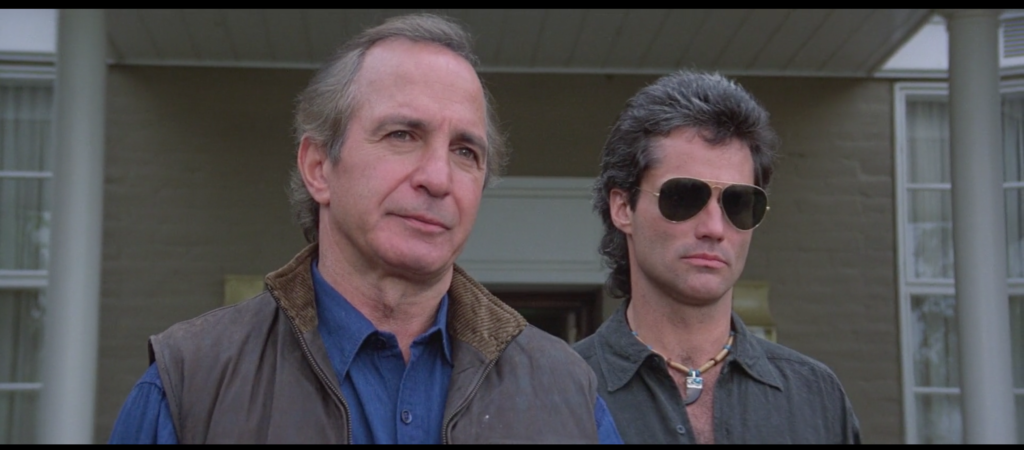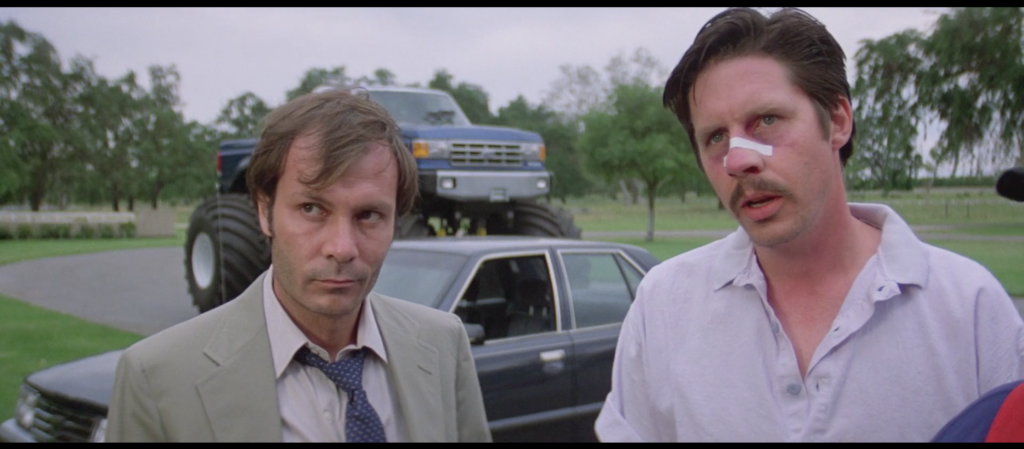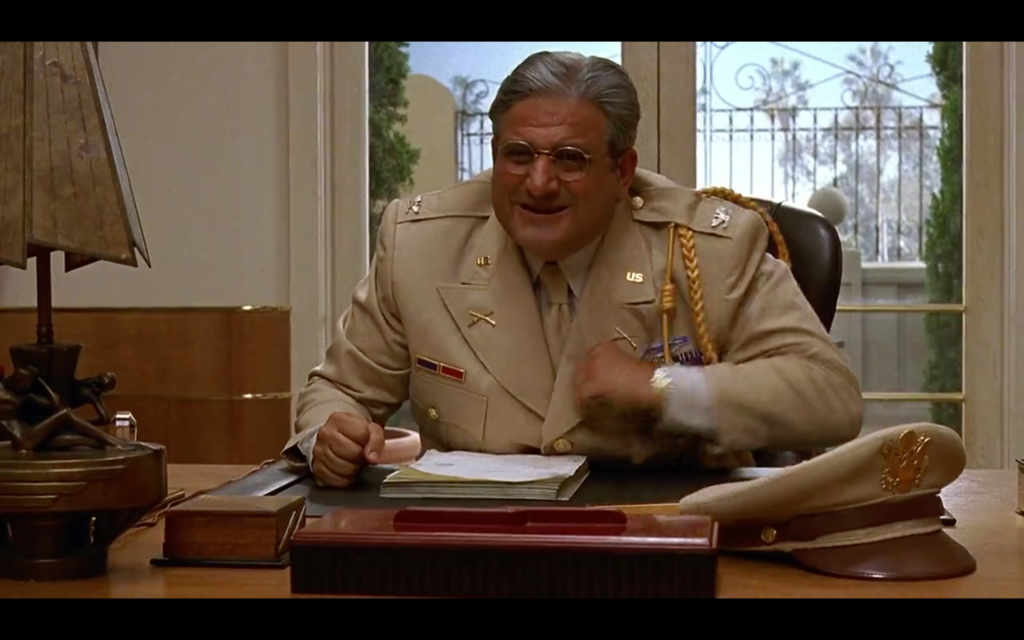“I name Éomer my sister-son to be my heir.”—Théoden, The Lord of the Rings
“He’s my only sister’s son, and if he doesn’t have me, who’s he got?”—Brad Wesley, Road House
Not even I, a person with the White Tree of Gondor tattooed on my arm who is writing an essay about Road House every day for a year, can come up with much of a connection between the King of Rohan and the Chief Job Creator of Jasper, Missouri beyond the antiquated syntax with which they refer to their nephews, Éomer son of Éomund and Pat McGurn respectively. Wesley isn’t about to name his mustachioed kinsman his successor anytime soon, certainly. “Pat’s got a weak constitution, you boys know that,” he tells his assembled henchmen after two of their number, Tinker and O’Connor, failed to forcibly reinstate Pat in his old gig at the Double Deuce during one of the Knife Nerd incidents. “That’s why he’s working as a bartender.” Poor Pat, not even fit for full-time goonmanship.
Pat isn’t even present to hear this condescension, having slunk shamefacedly into Uncle Brad’s mansion at the first opportunity, allowing his comrades-in-goon to take the heat. Why should he bother sticking around? He knows his place, and it’s not at his uncle’s side. It’s Jimmy, Wesley’s strong right hand and, in my considered opinion, secret bastard son who’s the heir apparent. “I should have let you go, Jimmy,” Wesley says regarding the failed mission, an avuncular (fatherly?) hand on the back of the younger man’s neck. Better for Pat to spare himself the sight.
So no, Wesley’s rhetorical style here doesn’t remind me of Théoden King. Rather, I’m put in mind of another great man.
Jack Lipnick is the head of Capitol Pictures, the studio that hires a certain New York playwright to give a Wallace Beery wrestling picture That Barton Fink Feeling. Like Brad Wesley, he came up the hard way (“I mean, I’m from New York myself. Well, Minsk, if you wanna go all the way back—which we won’t, if you don’t mind, and I ain’t asking”) and rose to prominence and power by exerting control over the local economy, largely by screwing other business owners out of their share (regarding his assistant Lou Breeze: “Used to have shares in the company. Ownership interest. Got bought out in the Twenties. Muscled out, according to some. Hell, according to me”).
The tone Lipnick adopts when speaking about producer Ben Geisler, whom he fires instead of Barton when the latter screws up, sounds familiar. “That man had a heart as big as the all outdoors, and you fucked him!” he says, voice soaring as if with the eagles as he describes the generosity of spirit found in a guy he shitcanned, then cracking like a whip as he drops the f-bomb on the person truly at fault, at least in his eyes.
Though he prefers physical assault to firings, Brad Wesley reacts in similar fashion over his sister-son’s plight, arbitrarily beating his goon O’Connor unconscious for, alternately, being untruthful, unable to admit he was wrong, weak, unable to tolerate pain, cowardly and above all prone to bleeding. O’Connor’s failure regarding Pat may have occasioned the beating, but it isn’t even mentioned during the beating itself as one of Wesley’s half-dozen reasons for inflicting it.
For men like Wesley and Lipnick, people are worth caring about only to the extent that doing so, or pretending to do so, enables them to torment others on their nominal behalf. These men, like their words, are overinflated and empty. The overwrought sentiment intended to conceal the lie reveals it instead.
Tags: barton fink, brad wesley, j.r.r. tolkien, jack lipnick, jimmy, o'connor, pat mcgurn, road house, the coen brothers, the lord of the rings



